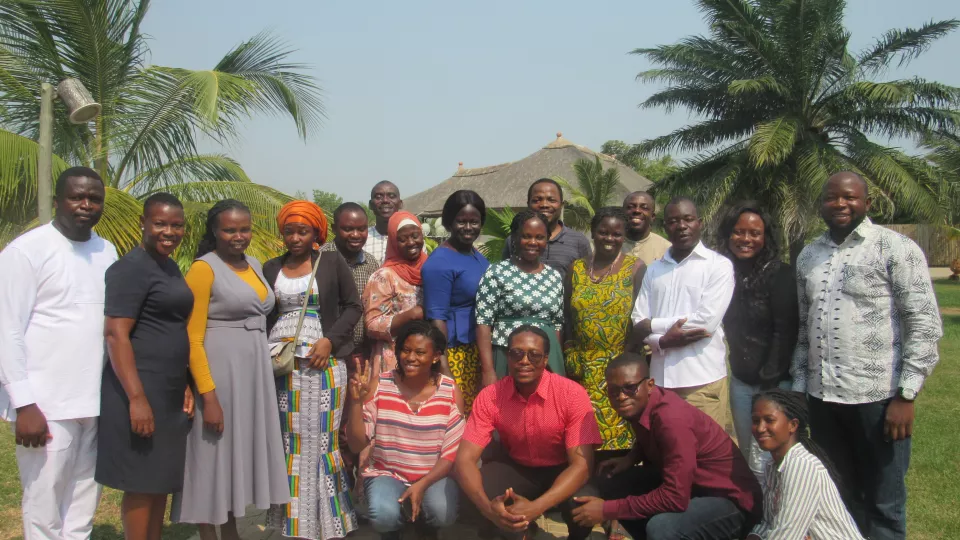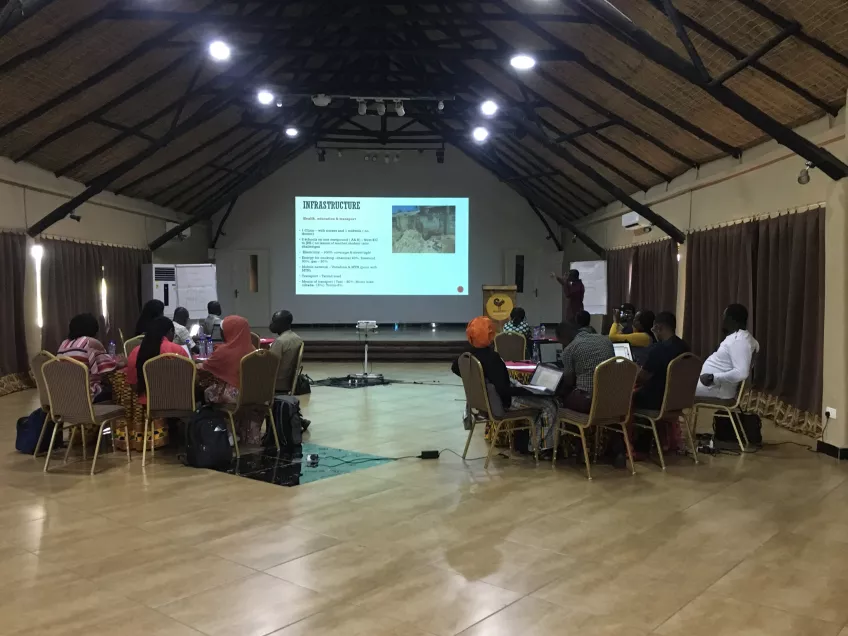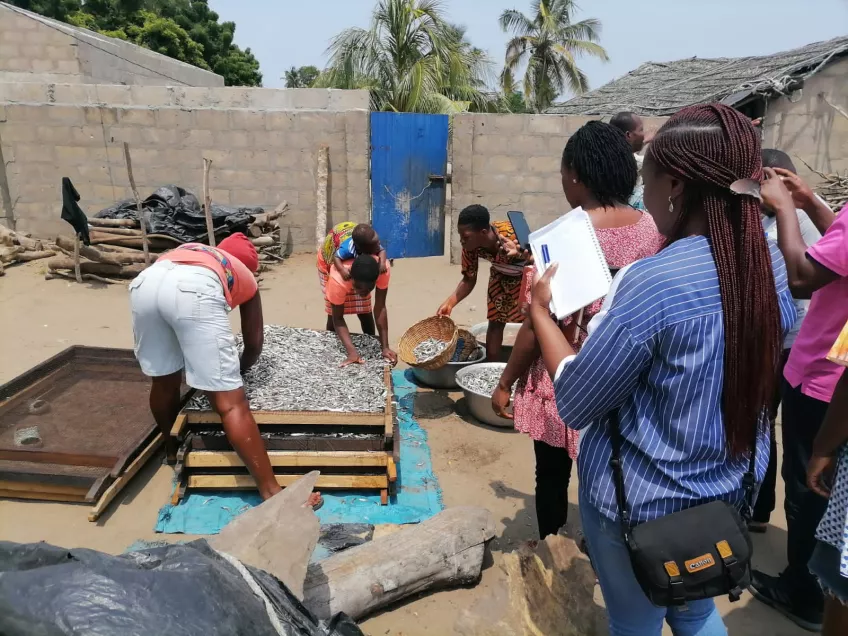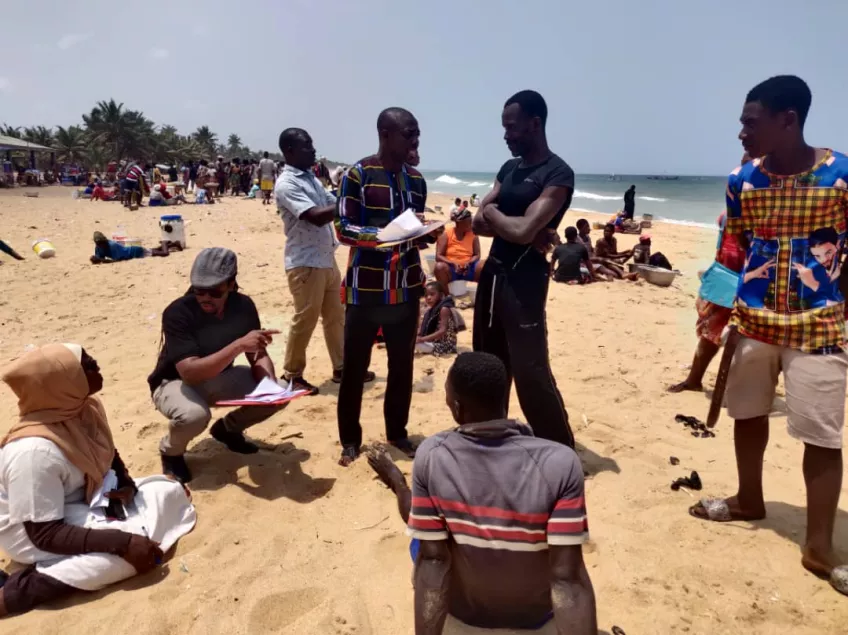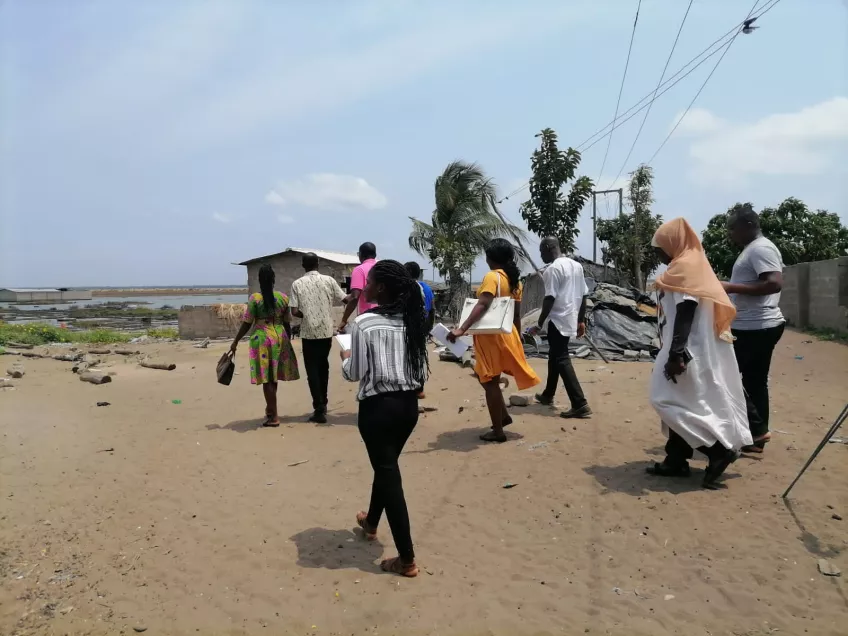The doctoral course was organised by the Institute of Statistical, Economic and Social Research (ISSER), in collaboration with the School of Graduate Studies, University of Ghana, universities of Lund, Gothenburg and Uppsala for doctoral researchers in Africa.
The course's objective was to enhance doctoral researchers' knowledge of research methodology, particularly in studying related topics of the Sustainable Development Goals (SDG). The course was convened by Doctor Fred Dzanku and Doctor Gertrude Dzifa Torvikey of the Institute of Statistical, Social and Economic Research (ISSER). It was facilitated by Professor Akosua Darkwah of the Department of Sociology, University of Ghana.
Participant Selection
From the 105 applications, 17 were accepted. Many of the applicants were highly qualified and so, due to this, the critical considerations were gender, cross-continental and inter-Ghanaian university balances. In all, the 17 applicants comprised twelve Ghanaians. The non-Ghanaian applicants were nationals of Kenya (a student at the University of Ghana), Nigeria, Niger (a student in Côte d’Ivoire), Zambia and Zimbabwe (a student in South Africa).
Programme and Activities
The course was segmented into three main parts. The first part, delivered within two days, dealt with research methodologies centred on reading materials shared two weeks before the Workshop. The focus was on qualitative, quantitative, and mixed method approaches in social research.
Doctor Fred Dzanku facilitated the quantitative research method course on day one, while Professor Akosua Darkwah taught the qualitative research course on day two. The course covered the philosophical underpinnings of qualitative research and qualitative approaches such as interviews, Focus Group Discussion, Ethnography and Observation. Practical activities such as coding of interviews were part of the qualitative component.
In addition, a method of reading and synthesising articles and books based on the CALQ method:
- C-core quotation
- A-argument
- L-linkages to other readings
- Q-questions the reading raised
The method was introduced into the course because the facilitators realised that one of the main challenges to writing a literature review is how to synthesise text.
Facilitators placed participants in four groups to enable full participation during the fieldwork for day 3. With assistance from the senior faculty, each group presented drafted qualitative questions to be used in the field. The groups were:
- Fishermen,
- Fish processors/ marketers
- Salt winners
- Community survey
In addition, the facilitators created a second group for field observation based on the senses, namely, sight, smell, and hearing. Finally, all participants were required to take note of their feelings after the fieldwork.
On the third day, the group left Sogakope in the morning for Adina in the Ketu South of the Volta Region of Ghana. First, the group met the Assembly man, who welcomed them and subsequently briefed the group about activities in the community. Then, he sent the group to crucial socioeconomic sites in the community, including the prefix fuel station, the salt wining site, and the landing beach. From then, the groups split, and the interviews and interactions started in earnest.
On the way back to Sogakope, Professor Akosua Darkwah facilitated a debriefing on the field activities, where participants shared field observations and reflections on the day’s activities.
In the evening the group watched a documentary by Third World Network (TWN), titled “Salt, Our Lives". Doctor Gertrude Dzifa Torvikey facilitated the discussion of the film, which generated much debate about livelihoods, the state's role, state power and issues about participation and aspirations of rural people in neoliberal development project contexts.
On the last day, groups presented their findings. The presentations generated insightful discussions and questions from participants. They also linked the lessons they had learned from the school to their own research areas.
Evaluation
An evaluation form designed in google was shared with participants to evaluate the course anonymously. In general, all participants agreed that the facilitation and mode of delivery were excellent, the course was relevant and valuable for their doctoral studies, and the school increased their knowledge in research methodologies.
Nonetheless, not many thought the time allocated for the activities was adequate. But, a little more than half reported that course increased their knowledge of SDGs research.


